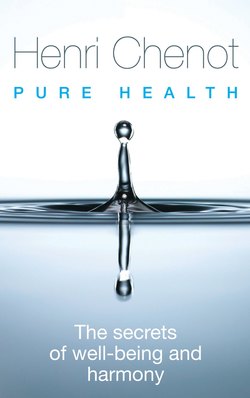Читать книгу Pure Health - Henri Chenot - Страница 14
На сайте Литреса книга снята с продажи.
Ageing – A Programmed Evolution
ОглавлениеThe ultimate and major common denominator among all human beings is the progressive deterioration of our vital functions. Fundamentally linked to our lifestyle, ageing has a dark side that slowly and inescapably imprints deterioration on various tissues until there ceases to be any cellular and respiratory activity at all.
This deterioration is felt bit by bit from the age of 35. From this time in our lives, our capacities tend to diminish – starting with our digestive and hormonal abilities – and they register more pronounced slowing on a seven-year cycle: 35, 42, 49, 56, 63, 70, 77. These stages require us to readjust our food to coincide with the decline in our capacities. To behave like a responsible adult, we must take this slowing down of our metabolism into account and act according to our age. The quality of how we age is dependent on accepting this maturity.
No single thing is responsible for ageing. Hormones certainly play a part as hormonal production slows, but the whole metabolism plays a part in ageing: our digestive abilities and the assimilation of food, diminishing cell regeneration and reduced capacity to slow down the natural oxidation process of our bodies. We are always the age of our organs, because genetics are a constant factor in the ageing process: for example, at the age of 66, even if we do well in a check-up, the vital organs – the liver, heart and stomach – are still all 66 years old. If we don’t take this into consideration when making lifestyle decisions, then we increase our chances of premature ageing.
Nevertheless, ageing is due to a decrease in the quality of protein reproduction, and this accounts for a vast area of investigation that we’re working on at the Academy of Biontology. While we look into it, we can be sure of one thing: the more we age, the more laborious it becomes for us to extract proteins from food that we must then break down to make our own proteins, containing our tissular and genetic identity. At the same time, the ageing body’s capacity for absorption, like our ability to digest, both weaken. And this decline in protein renewal has repercussions on the quality of our bones. This is why osteoporosis threatens some of us as we get older.
